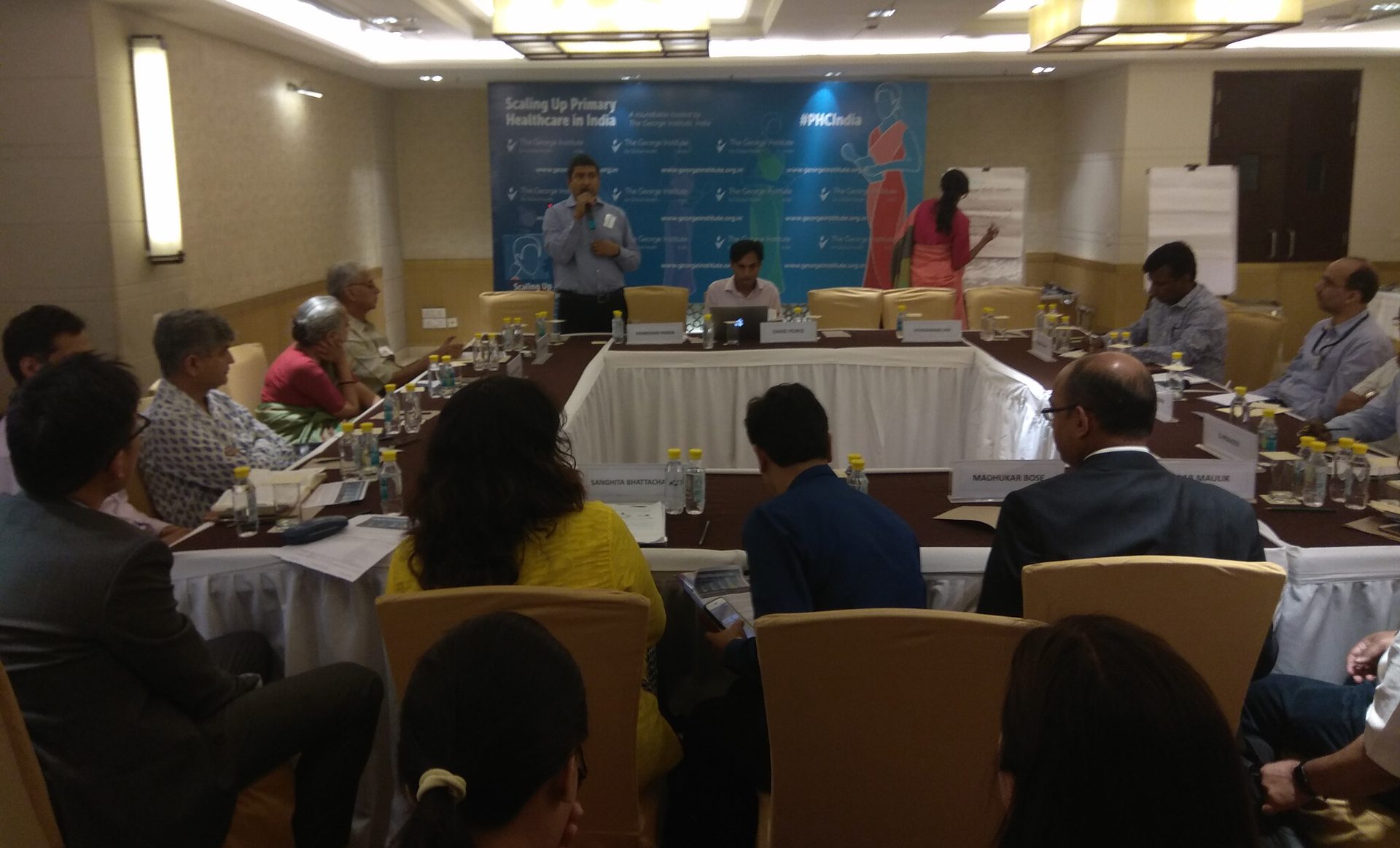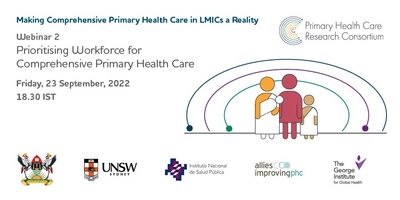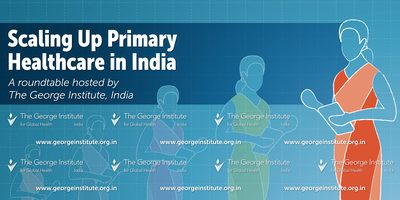
Opportunities and challenges for scaling up primary healthcare in India
At a time when the government at the Centre has started the process of upgrading primary health centres into comprehensive wellness centres, the George Institute for Global Health India today hosted a roundtable discussion on opportunities and challenges for scaling up primary healthcare in India.
The focus of the discussion was to understand different models of primary health care, consolidate diverse experience in the delivery of primary care and identify associated gaps in knowledge and evidence.
Speakers and participants included government officials, primary health care providers, academics, representatives of international agencies and civil society organisations.
Setting the tone for the discussions Dr Rajani Ved, Executive Director, National Health Systems Resource Centre (NHSRC), gave a comprehensive overview of the integrated package of services that was being planned through the wellness centres and the organisation of comprehensive primary health care that is being envisaged as part of the process.
She said multi-skilling of frontline health workers has already started and plans are underway for establishing hub and spoke models for diagnostic services.
Prof David Peiris, Director, Health Systems Science at the George Institute for Global Health, Sydney said that the Institute had recently conducted an extensive review of the current literature on primary health care in the Asia Pacific and used this to identify clear ‘gaps’ in the evidence base.
The initial findings suggest that strong policy frameworks exist in different Asian countries but primary health care systems are not meeting the growing demand. Also, health care access is extremely limited in low income countries, especially in rural areas.
“There is a need to tackle the triple burden of NCDs, injuries and infectious disease which pose great challenges for the health systems. Much of the PHC evidence is still disease siloed and less known about integrated ‘packages’ of care,” Prof Peiris said.
At the roundtable discussion, participants were invited to review and amend this ‘gap map’ to ensure it reflected the Indian context. Outputs of the roundtable will include an India-specific case study on stakeholder perspectives of knowledge gaps in primary health care, and a clear and prioritised list of evidence needs.
The findings will also be incorporated into a publication and presentation at the Global Symposium on Health Systems Research, in the UK in October 2018.



